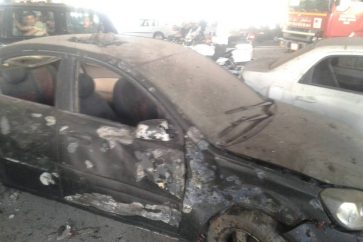Syria
ISIL Terrorists Claim Syria’s Midan Suicide Blasts


ISIL terrorist group issued on Tuesday a statement in which it claimed the terrorist blasts which rocked a day earlier a police station in al-Midan area in the Syrian capital Damascus.
The statement mentioned that two of the three culprits blew themselves up in the headquarters of the police station and that the third suicide bomber’s attack was next to the targeted building.







